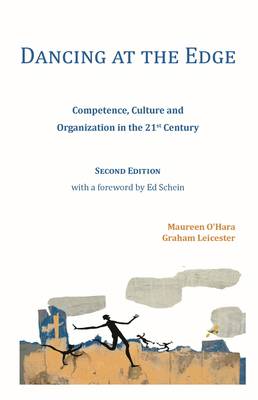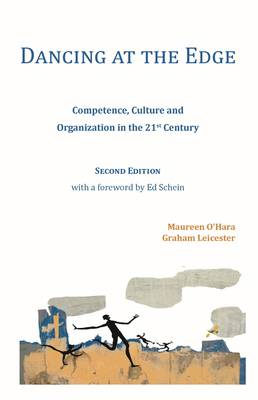
- Retrait gratuit dans votre magasin Club
- 7.000.000 titres dans notre catalogue
- Payer en toute sécurité
- Toujours un magasin près de chez vous
- Retrait gratuit dans votre magasin Club
- 7.000.0000 titres dans notre catalogue
- Payer en toute sécurité
- Toujours un magasin près de chez vous
Dancing at the Edge
Competence, Culture and Organization in the 21st Century
Graham Leicester, Maureen O'Hara
Livre broché | Anglais
22,45 €
+ 44 points
Description
In his 1969 essay, The World of Tomorrow and the Person of Tomorrow, the psychologist Carl Rogers looked ahead to the volatile, uncertain, complex and ambiguous (VUCA) world we inhabit today. He suggested that living in such a world would require a whole new set of competencies - demonstrated already by the 'persons of tomorrow' he saw around him even then. In Dancing at the Edge, Maureen O'Hara and Graham Leicester pick up the thread fifty years on. Drawing on extensive research and their own wide experience, they map the 'powerful times' in which we live, the 21st-century competencies required to thrive in this complexity and how to discover and develop them in practice. They identify: - Three emergencies: real, conceptual and existential - Three potential responses: denial, collapse and transformation - Three literacies: psychological, cultural and epistemic These literacies - or ways of reading the landscape - open the door to our 21st-century competencies, which are innate, relational, and will develop through practice in a supportive organizational or social setting. The picture that emerges is complex but remarkably clear and surprisingly hopeful - even exhilarating. Organizations of every sort from businesses to schools and healthcare, from government bodies to NGOs, can create the conditions, offer the support and provide the context within which engaged, aware, passionate and compassionate people can rise above denial and take on the challenges of today's powerful times. This is a handbook for anyone aspiring to develop their 21st-century competencies and for any organization hoping to cultivate the persons of tomorrow in its midst.
Spécifications
Parties prenantes
- Auteur(s) :
- Editeur:
Contenu
- Nombre de pages :
- 206
- Langue:
- Anglais
Caractéristiques
- EAN:
- 9781911193678
- Date de parution :
- 01-10-19
- Format:
- Livre broché
- Format numérique:
- Trade paperback (VS)
- Dimensions :
- 142 mm x 216 mm
- Poids :
- 272 g

Les avis
Nous publions uniquement les avis qui respectent les conditions requises. Consultez nos conditions pour les avis.






